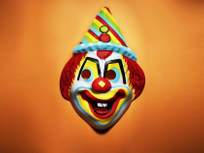Word of the Day
: March 15, 2021circumlocution
playWhat It Means
1 : the use of an unnecessarily large number of words to express an idea
2 : evasion in speech
circumlocution in Context
"Yorgos Lanthimos' The Favourite is set in the early 18th century at the court of England's Queen Anne but don't expect any elaborate euphemisms and elegant circumlocutions.… [The] dialogue … cuts straight to the heart of things while frequently cutting to the quick, as well." — Sandra Hall, The Sydney (Australia) Morning Herald, 21 Dec. 2018
"Every journalist has it drummed into them at an early age that you cannot end an article with the phrase 'time will tell,' which is why you often see circumlocutions in the concluding paragraph of features or opinion columns such as 'it remains to be seen' or 'the real test is yet to come.'" — John Rentoul, The Independent (London), 1 Aug. 2020
Did You Know?
In The King's English, grammarian H. W. Fowler advised, "Prefer the single word to the circumlocution." Alas, that good advice was not followed by the framers of circumlocution. They actually used two terms in forming that word for unnecessarily verbose prose or speech. But their choices were apt; circumlocution derives from the Latin circum-, meaning "around," and locutio, meaning "speech"—so it literally means "roundabout speech." Since at least the early 16th century, English writers have used circumlocution with disdain, naming a thing to stop, or better yet, to avoid altogether. Charles Dickens even used it to satirize political runarounds in the 1857 novel Little Dorrit with the creation of the fictional Circumlocution Office, a government department that delayed the dissemination of information and just about everything else.
More Words of the Day
-
Apr 21
bodacious
-
Apr 20
resurrection
-
Apr 19
fastidious
-
Apr 18
collaborate
-
Apr 17
uncouth
-
Apr 16
adversity











